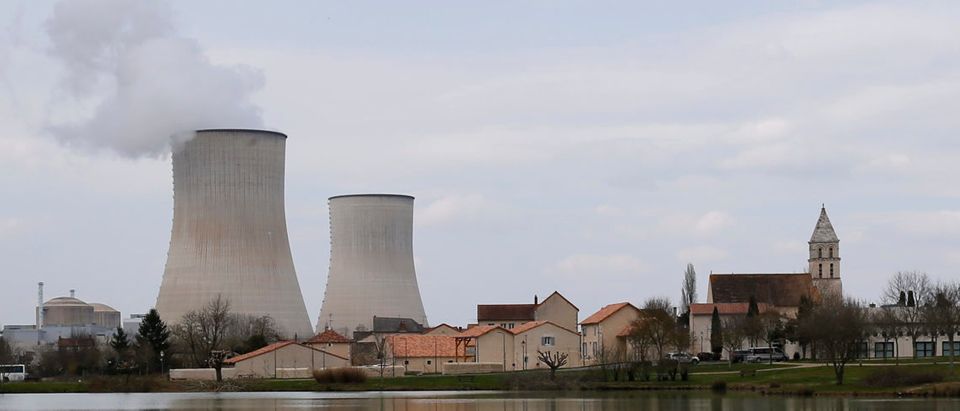A newly released study found that there would be no reliability threat to the U.S. grid should several of FirstEnergy’s nuclear plants close down, undercutting the company’s claims of potential power shortages.
Mid-Atlantic grid operator PJM released its deactivation analysis on Monday, concluding that there would be no risk to electricity service if three nuclear plants operated by FirstEnergy — Davis-Besse Nuclear Power Station (Ohio), Perry Nuclear Generating Station (Ohio) and Beaver Valley Nuclear Power Station (Pennsylvania) — shut down operations.
Any power delivery issues resulting from the plants’ deactivation, the report noted, would be offset with preplanned transmission expansions. Furthermore, the PJM grid operator said there are no near-term fuel security concerns from upcoming plant retirements.
“Sufficient transmission margin remains to ensure that under normal peak conditions there is enough redispatch options to operate the system with two single outages,” read one of the concluding statements from the report.
The findings come as a major blow to FirstEnergy, which called PJM’s analysis a “disappointment.” The company has claimed that allowing their financially unviable plants to close would bring the risk of rolling blackouts.
The Ohio-based energy company first announced plans to close its reactors in March. The decision followed massive shortfalls in revenue from the plants. FirstEnergy’s facility in Shippingport, Penn., lost about $90 million in 2017 alone. In order to keep the plants from closing, FirstEnergy has requested the federal government step in and keep the plants running. Officials with the company have requested Energy Secretary Rick Perry initiate a 202(c) grid emergency, a provision created to ensure the grid would keep running during emergency situations, such as hurricanes or world wars. Such a situation would force PJM to buy FirstEnergy’s power, ultimately resulting in higher prices for electricity consumers.
“What FirstEnergy is describing in its application is not an emergency,” said Harvard Law professor Ari Peskoe on April 13 in a statement. “It’s just that they’re not getting paid as much as they’d like. That’s not an emergency.”
Opponents of the idea of a 202(c) for FirstEnergy — many of them market competitors — argue that the company is simply seeking a bailout for unprofitable plants.
Beyond threats to the electrical grid, FirstEnergy also warned of the economic and environmental dangers that plant closures pose.
The Brattle Group — at the behest of the Nuclear Matters — conducted a study on what would happen if several of the plants shuttered operations. Among the report’s key findings: annual CO2 emissions would increase by more than 20 million metric tons; harmful air pollutants such as NOx and SO2 would see an annual increase; electricity costs would rise dramatically for energy consumers, increasing by as much as $285 million a year for Pennsylvanians and $400 million for Ohio residents.
Unfortunately for FirstEnergy, the Trump administration has not been receptive to the idea of a 202(c). Perry, during remarks at an energy conference on April 9, said he did not believe it was the “most appropriate” option on the table. The White House has not commented much further about the matter.
Nuclear plants across the U.S. have encountered financial hardship amid a rapidly changing energy industry. Following the implementation of hydraulic fracturing, natural gas has emerged as an efficient fossil fuel source, which is cleaner than both coal and oil. Natural gas has also become much cheaper than other sources of energy, driving numerous coal and nuclear plants to be financially unviable options for electricity production.
All content created by the Daily Caller News Foundation, an independent and nonpartisan newswire service, is available without charge to any legitimate news publisher that can provide a large audience. All republished articles must include our logo, our reporter’s byline and their DCNF affiliation. For any questions about our guidelines or partnering with us, please contact licensing@dailycallernewsfoundation.org.












